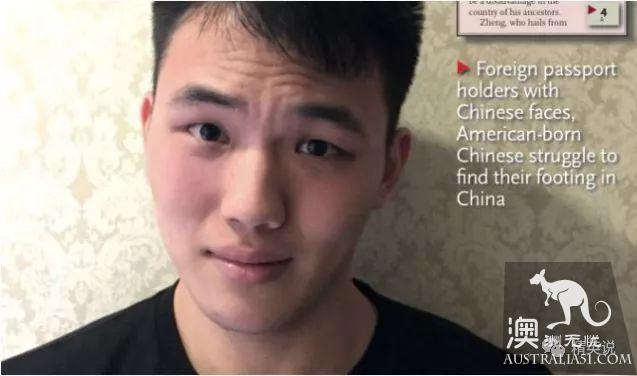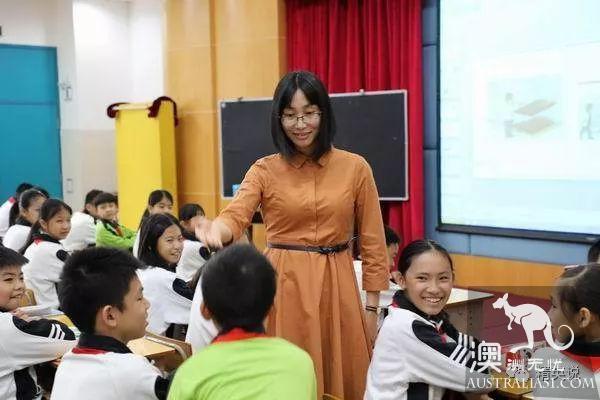
Born in Washington, D.C., 23-year-old Cheng Kai-Cheng, a 23-year-old Chinese-American, grew up eating American food, speaking American English and being nurtured by American culture.
Black hair, yellow skin, his parents are immigrants from China, which makes him have a strong interest in Chinese history and culture.
He did not expect, however, that the most unexpected white eyes and "discrimination" he had ever suffered in his life came from the distant shore of the ocean, from the people who had the same blood as him.
Once upon a time, the gap and rift between Chinese-born (American Born Chinese, who grew up in the United States, and native Chinese, was expanding at an alarming rate.
We always criticize American racial discrimination, but forget that we are blindfolded by stereotyping, hurting others without knowing it.
Cheng Kai-Cheng, who studied history and Chinese at the University of Virginia and worked as an exchange student at Tsinghua University, has been able to speak very fluent Mandarin.
The experience of studying in Tsinghua University made Zheng Kai-Cheng deeply fascinated by Chinese culture. Forbidden City, Great Wall, Tomatoes on sticks string. Everything in China is so charming and cordial in his eyes. Adding to his desire to "find roots" from childhood, he was determined to leave his friends and relatives in the United States and return to China to develop his cause.
At the end of 2016, Zheng Kai-Cheng and American friend Dylan formed the band "A bunch of foreigners" (Dylan and Vic), to remake Chinese pop songs, in which the English-language repertoire of "Unforgettable Night" gained nearly 4 million views on Weibo and became a big hit.

Zheng Kai-Cheng (left) and friend Dylan formed a band
Their outstanding talent and rapidly accumulated fame also attracted the attention of a large domestic music company. Just as the two sides were about to sign a contract, Cheng Kai-Cheng suddenly said that they had been "eliminated." The reason is, "I have a Chinese face".
Although this reason surprised Cheng Kai-shing, the explanation of the other company made him feel the problem behind him.
They told me that if I were a real Chinese, the Chinese audience would very much like such a young person who can speak fluent English; or if I am a pure "foreigner" who can speak fluent Chinese, there will also be a considerable market.
And Cheng Kai-Cheng, caught between the two, is likely to stir up hostility among some native Chinese. The company believes foreigners like Dashan, who speak fluent Chinese, are more popular.
In fact, since Zheng Kaicheng entered some media platforms in China, he has been puzzled by messages such as "traitors" and "foreign running dogs".
He clearly is a Chinese-American, English is his mother tongue, and he also loves Chinese culture, wants to stay in China to develop.
But he can't give up his American identity completely and pretend to be a "pure-bred" Chinese, just as he can't deny his Chinese blood.
Zheng's experience is not a case in point. When Huang Shu-Lin, an Australian-born Chinese, was looking for an English teaching job for foreigners in China, she repeatedly ran into the wall because of her Chinese face.
After more than 30 interviews, she traveled back and forth in Beijing for months, and Huang Shu-Lin was resentful but had to give up.
The interviewer politely rejected her, saying they preferred to hire an English teacher with a "non-Chinese" face. In the taxi home, the driver still shouted at her, "Don't you think you're too sorry for the Chinese?" Your Chinese is so bad! "

Huang Shulin has his own confusion: "am I a Chinese?"
In June 2017, Zheng Kaicheng's documentary, "our Prejudice: about Chinese and Chinese," launched online on domestic video sites, hoping to record and reflect the same phenomenon of "racial discrimination" in China. Convey the voice of the Chinese community.
Interviewees believe that Chinese people do have prejudices against the Chinese community, and that many Chinese have experienced their own misunderstanding and indifference.



Source: documentary "our prejudices: about the Chinese and the Chinese."
"if you have a Chinese face, you should speak fluent Chinese."
"when you introduce yourself, you shouldn't call yourself an American."
"if the United States and China fight, you have to support China!"
Whenever the Chinese say these words in front of their faces, they are always confused and at a loss as to how to respond is "right".
According to data released by the Census Bureau in 2013, there are 19.44 million Asian-Americans in the United States, or about 6 percent of the population, of whom 4.52 million are Chinese, the "mainstream" of the Asian-American population.
Of the more than 4 million Chinese, 1/3 are second-generation immigrants born and raised entirely in the United States.
Although they have Chinese blood, they are a real American. When they grow up and return to China, they want to see an open, inclusive, pluralistic "homeland" like the United States, expecting to be understood, recognized, and expected to collide with ideas.
However, the prejudice and discrimination from the Chinese, they did not expect. With an American passport and a Chinese face, he was born "ABC" and "Banana Man" and became a sin.
If Chinese discrimination and abomination against the Chinese ethnic group does exist, then what is the reason for this? Knowing a related hot question seems to give us some clues.
Netizens' answers point in one direction: "they look down on us first."

In the depiction of netizens, ABC are a group of people who are eager to draw a line with the Chinese, trying hard to wash off their "China" mark and reveal their "nobility" in order to better be accepted and recognized by American society.
One netizen said he had met a Chinese American who refused to admit that he could speak Chinese, and when he quarreled with his Chinese roommate over trifles, he finally couldn't bear to scold him in fluent Chinese.
It is true that some Chinese Americans are either eager to draw a line with "low-quality" Chinese, or want to get rid of American discrimination and stereotypes about their Asian identity, or to prove that they can be a "real American." Therefore, he refused to accept his own Chinese imprint.
This kind of "escape" and "deny" makes the national self-esteem very strong we feel hurt. Even if they are unable to speak fluent Chinese, our anger will be provoked and amplified infinitely, which in turn has affected countless generations of Chinese Americans eager to get close to China and embrace China.
In 2014, Duke University students interviewed 40 Asian-Americans with a sentence they had always wanted to say to those who misunderstood them. These images are shocking, and while initially intended to draw attention to the discrimination against Asian-American communities in the United States, in today's Chinese context, it can also be thought-provoking. That's what they say-
"it's hard for me to lose my original language."
"I sometimes miss home, but I don't know where I think it is."
"I have always been ashamed of growing up because my family is not" white "enough."
"I'm sorry that I can't communicate with my relatives in China because of language problems."
"people hate me everywhere they go because of racial discrimination."
Communication, dialogue, seeking common ground while reserving differences. At the end of the documentary, "our bias: about Chinese and Chinese," the keywords given by the interviewees seem to confirm some possibility of integration.
In fact, we should not let blind prejudices and resentment cover our eyes in the face of those Chinese Americans who have a good faith in China. In the face of us "a bit like and a little unlike" their, an open and inclusive heart, is the only way to cross the gap and gulf.
Original title: study in Tsinghua: I want to go back to the motherland to find root, can be discriminated against …